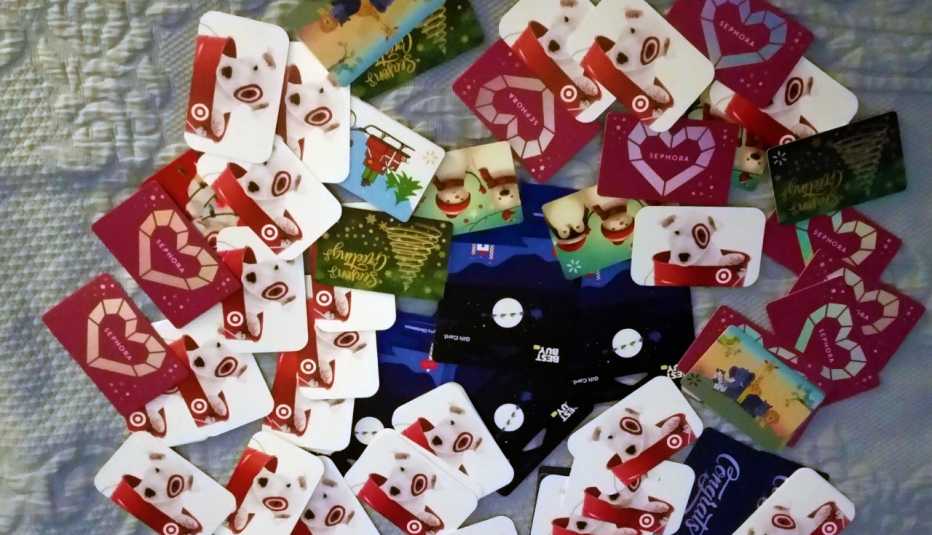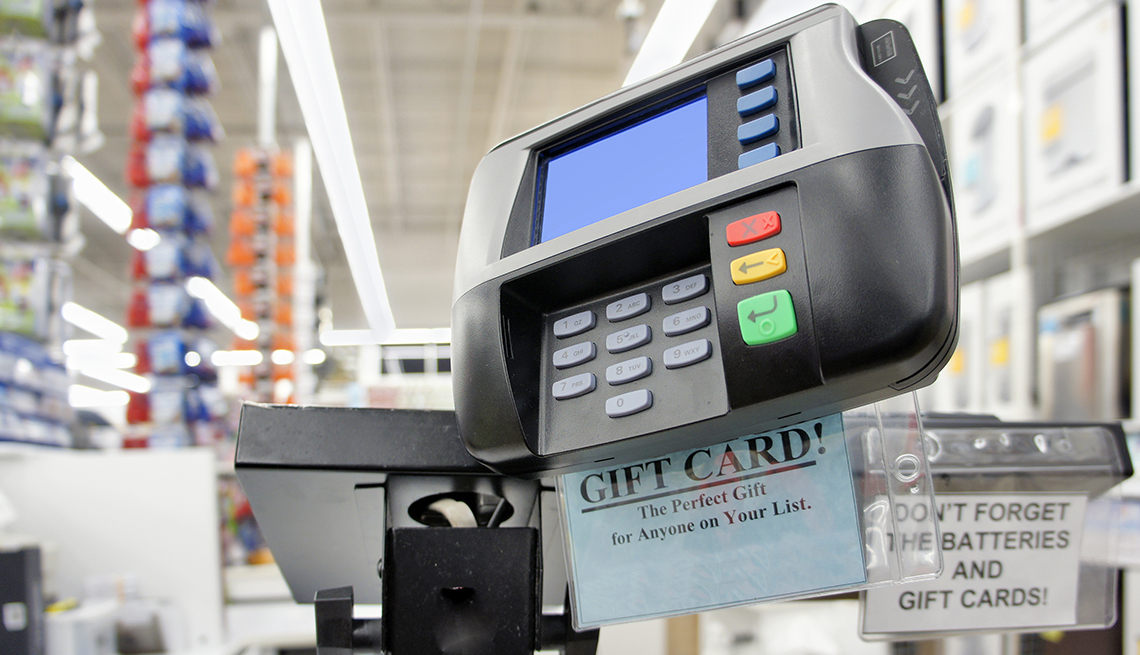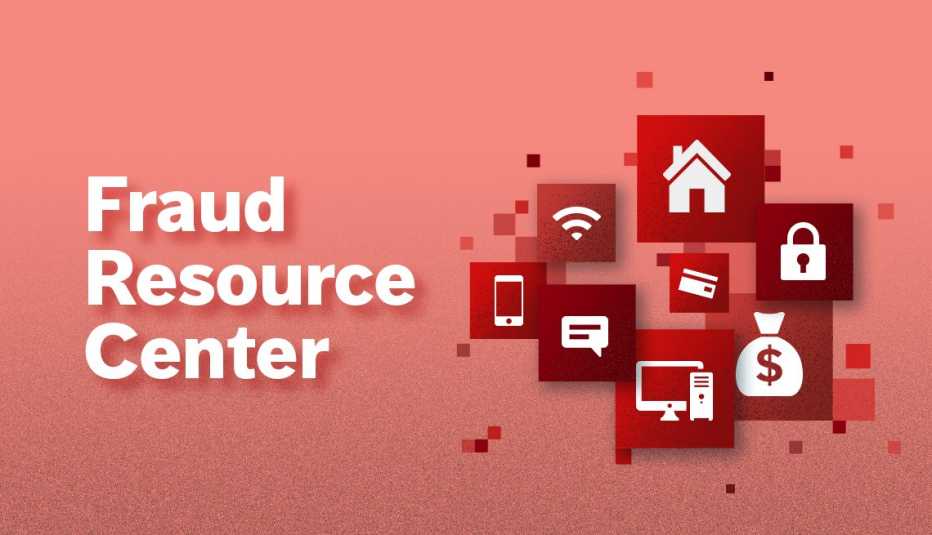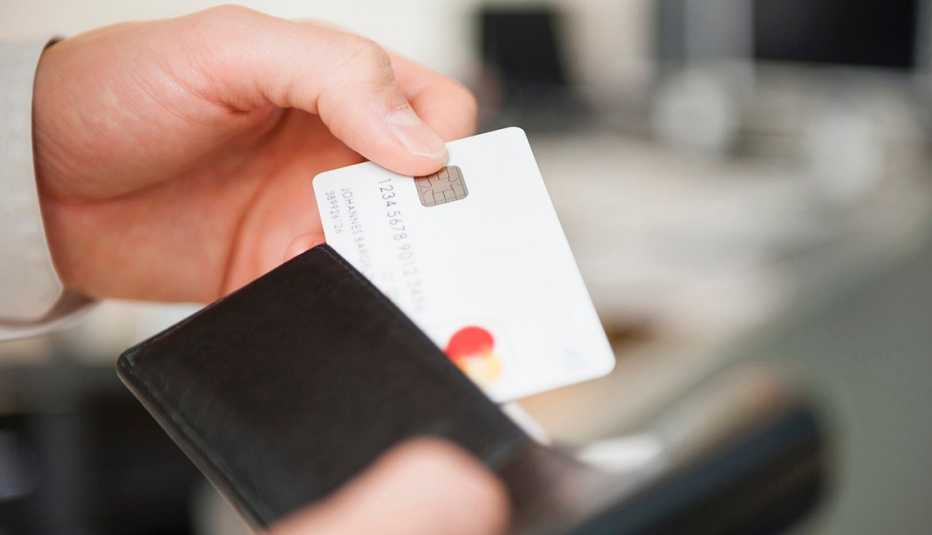AARP Hearing Center
As stores buzzed with holiday traffic last month, John, a 75-year-old man in Arkansas, dropped $35,000 on gift cards in three days. The retired professional shopped six retailers in all — Lowe's, Walmart, Sephora, Best Buy, Sam's Club and Target — where he bought 70 gift cards, worth $500 each.
And he lost every dime.


The fraudsters who orchestrated John's spending spree Dec. 10-12 fed him a string of lies and kept him on his cellphone to coach him every step of the way on what to say and do. At times his credit cards were declined, and his blood pressure soared “out the roof."
"I'm sure if they were talking to somebody with a bad heart, they would have died,” John says. “It was very stressful."
He talked to AARP to prevent others from falling prey to a scheme that officials say often goes unreported — and is on the rise. John spoke on condition that his last name and the place he lives not be published.
Day 1: An alert, an alarm and a litany of lies
John was online the morning of Dec. 10 to check out a steak-and-seafood restaurant, planning to take out his wife of 53 years. The couple had been given a gift card — an irony not lost on him — and it was the last day to redeem it.
A pop-up alert, supposedly from Microsoft, warned that his computer had been hacked. Simultaneously, an alarm blared and wouldn't stop.
"Instead of just turning the computer off,” John says, he called the phone number on the pop-up on his computer screen. The man who answered, purporting to be from Microsoft, told John his email had been hacked and his JPMorgan Chase & Co. Visa card compromised.
"I'm in a panic, obviously,” remembers John, who complied with the fraudster's request for the phone number on the back of his Chase card.
Next the fraudster made a three-way call, ostensibly for help from Chase. Sure enough, Chase's phone number showed up on John's caller ID. During this call a second fraudster said the card had been used for a $8,000 donation to an orphanage in South Korea and a $7,000 charge in Dubai.
Both fraudsters had South Asian accents, and John surmises they were from India.
They told John there was a way to stop the charges from being processed and shield the card from further misuse. To do that, he would have to max out the card to its $25,000 limit by buying gift cards worth that much.
"I thought it was a crazy way to do it,” says John, an Army veteran who worked in military intelligence in Vietnam. But the crooks were persuasive and seemed legit since they knew the recent credit-card purchases John and his wife had made and the couple's Social Security numbers.
The bad actors promised that a replacement credit card was on its way. Then they cautioned the overseas charges could be the work of a fraudster inside Chase. For that reason, they told John, if any of his gift-card purchases were questioned by the card issuer, he should not reveal he was buying gift cards but say he was buying “Christmas presents."
John's first stop was Sephora, the cosmetics retailer, where he bought 10 gift cards for $500 each. He told the clerk he was buying Christmas gifts “for ladies in my family.” She “never batted an eye,” he recalls, over the $5,000 purchase.
John bought more gift cards after Sephora, driving from store to store until late at night. But even as the fateful day finally drew to a close, John's nightmare was far from over. “Get some rest,” one fraudster advised. “We'll start again in the morning."






































































